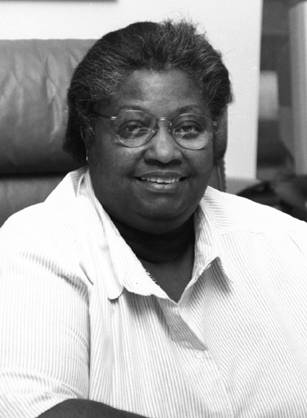Howard Fischer
Uppsala, Sweden

“Only a life lived for others is a life worthwhile.”
– Albert Einstein
Alexa Canady (b. 1950) was the daughter of Clinton Canady, Jr., DDS, and Elizabeth Canady, a civil rights activist and the first African American to serve on the Michigan Board of Education. Alexa’s maternal grandmother taught at Lane College, a historically Black college, in Jackson, Tennessee. Her grandfather was a pharmacist.
When she started public school in Michigan, a white teacher deliberately lowered her grades, but after IQ testing showed Alexa’s superior intelligence, she was moved ahead from the second grade to the fourth. In high school, she was one of the few Black students. She was captain of the debate team, and because of her interest in mathematics, she was permitted to study calculus at a community college.
She earned her bachelor’s degree in zoology and her MD (1975) from the University of Michigan. Black women made up about ten percent of her medical school class. She sensed that male professors generally ignored female students. During medical school, she became interested in neurosurgery and applied for a first-year general surgery residency position (required before neurosurgical training) at the University of Michigan. She was turned down and took a position at the Yale New Haven Hospital, becoming Yale’s first Black surgical resident. On her first day at Yale, a hospital administrator accused her of being given her residency there because of “affirmative action” and not because of her stellar medical school performance. “Affirmative action” was a federally sponsored program that reserved positions in educational institutions for members of groups that faced discrimination. She was an exceptional resident at Yale. She then went to the University of Minnesota for her five-year neurosurgery residency, followed by a one-year pediatric neurosurgery fellowship (1981–82) at the Children’s Hospital of Philadelphia.
In 1983, she started working as a pediatric neurosurgeon at the Children’s Hospital of Michigan in Detroit. She called the hospital “a place committed to taking care of the needs of those who really need the help, not because of any profit to be made, but because it has to be done.”1 She became chief of the neurosurgery department in 1987. Dr. Canady published some fifty articles on neurosurgical and neurologic topics, and invented and patented an “adjustable antisiphon shunt”2 to drain excess cerebrospinal fluid from the brain in patients with hydrocephalus.
She “retired” in 2001 and moved to Pensacola, Florida, but soon discovered that the city had no pediatric neurosurgeon. She practiced part-time in Pensacola until 2012, glad to be free of the administrative responsibilities she had as a department head. When this pioneering woman started her neurosurgical training, there were only four women neurosurgeons in the US.3
Today, among 219 board-certified female neurosurgeons, thirty-three are Black women. Anyone who had contact with Dr. Canady as I did, during her nearly twenty years at Children’s Hospital of Michigan, saw a woman of great compassion, skill, and kindness. She talked to parents and children with much respect and with a love of her fellow human beings. We worked together on cases of children suspected of having had abusive head trauma while I was the medical director of the Child Protection Team. She was always thoughtful, clear, and her decisions were evidence-based. Any medical student, resident, or attending physician could learn something about being a good doctor by watching Dr. Alexa Canady. In retirement, she now speaks to young audiences, telling her story and encouraging persistence, courage, and faith in oneself.
References
- Isabel Carson. Dr. Alexa Irene Canady: The Incredible Story of the First Black Woman to Become a Neurosurgeon. Independently published, 2022.
- “Alexa Canady.” Wikipedia.
- Marilyn Nicholson. “The struggle for educational attainment: A case study of the first African-American female neurosurgeon.” Dissertation, University of West Florida, 2005.
- Abbey, Cherie. Biography Today: Profiles of People of Interest to Young Readers: Scientists and Inventors. Detroit: Omnigraphics, Inc, 2002.
- Sood, S, AI Canady, and SD Ham. “Adjustable antisiphon shunt.” Child’s Nerv Syst 15, 1999.
HOWARD FISCHER, MD, was a professor of pediatrics at Wayne State University School of Medicine and Children’s Hospital of Michigan, Detroit, Michigan.
Highlighted in Frontispiece Volume 16, Issue 2 – Spring 2024

Leave a Reply